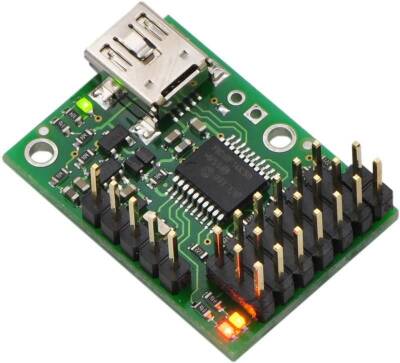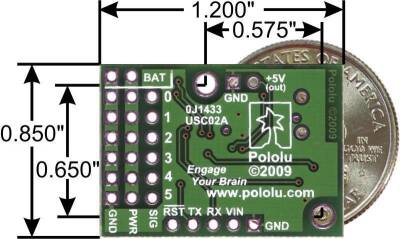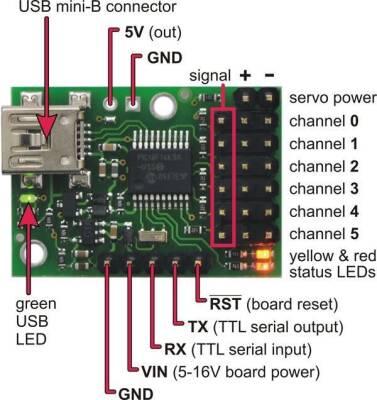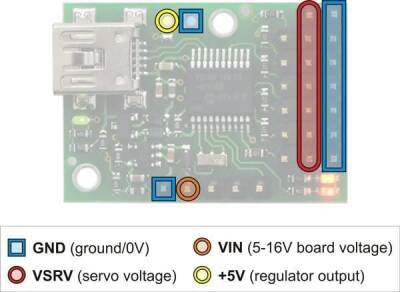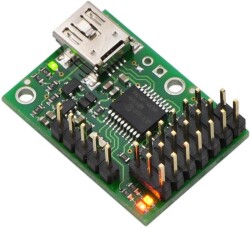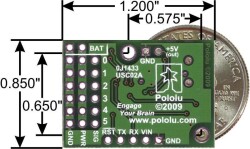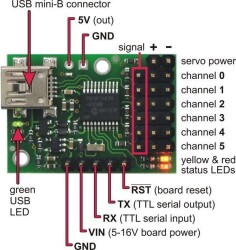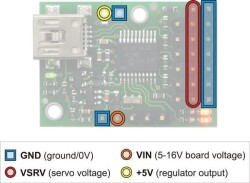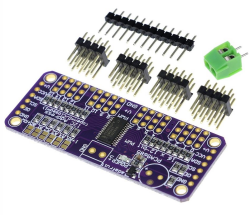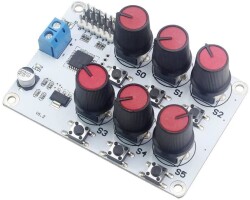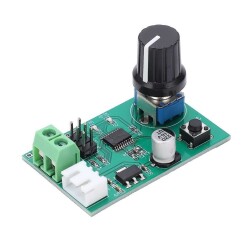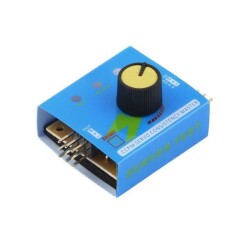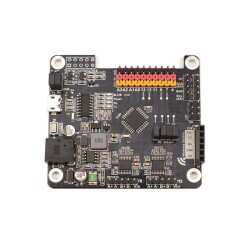0
Comment
Micro Maestro 6 Channel USB Servo Controller
774,30
TL
+
VAT
929,16
TL
Notify Me When It Arrives
Notify Me When It Arrives
Micro Maestro 6 Channel USB Servo Controller
Micro Maestro is a highly compact (0.85" × 1.20") versatile servo controller and general purpose I/O board. It supports three control methods: USB for direct connection to a computer, TTL serial for use with embedded systems, and internal scripting for standalone, host controller-free applications. Channels can be configured as digital outputs or analog inputs for use with radio controlled (RC) servos or electronic speed controls (ESCs). Highly accurate, high-resolution servo pulses have a jitter of less than 200 ns, making these servo controllers suitable for high-performance applications such as robotics and animatronics, and facilitating built-in speed and acceleration control for each channel. Achieve smooth, uninterrupted movements without requiring constant calculation of the control source and transfer of intermediate position updates to Micro Maestro. Units can be daisy-chained with additional Pololu servo and motor controllers on a single serial line.
A free configuration and control program is available for Windows and Linux, enabling the device to be configured via USB and It makes it easy to test, create servo motion sequences for animatronics or walking robots, and write, walk through, and execute scripts stored in the servo controller. Micro Maestro's 1 KB internal code memory allows storage of servo positions that can be automatically played back without a computer or external microcontroller being connected.
Micro Maestro's channels Because they can also be used as general-purpose digital outputs and analog inputs, they provide an easy way to read sensors and control peripherals directly from a PC via USB, and these can be used in conjunction with the command system to enable the creation of channels.
Specifications
- Three control methods: USB, TTL (5V) serial and internal script
- 0.25μs output pulse width resolution (corresponding to about 0.025° for a typical servo, which is beyond what the servo can resolve)
- Pulse adjustable from 33 Hz to 100 Hz
- Wide pulse range from 64 μs to 3280 μs
- Individual speed and acceleration control for each channel
- Channels can optionally be configured to go to a specific position or shut down on startup or error
Channels can also be used as general-purpose digital outputs or analog inputs
A simple scripting language can configure the controller after the USB and serial connections are removed.
Free configuration and control application for Windows makes it easy to:
- Configure and test your controller
- Create, run and store servo motion sequences for animatronics and walking robots
- Stored in the servo controller write, step and run scripts
- Two ways to write software to control Maestro from a computer:
- Virtual COM port makes it easy to send serial commands from any development environment that supports serial communications
- Pololu USB Software Development Kit, more advanced allows the use of native USB commands and includes sample code in C#, Visual Basic .NET, and Visual C++.
- The board can be powered by USB or 5V to 16V battery, making the set 5V available to the user.
- 0.85" × 1.20" (2.16 × 3.05 cm) compact size and 0.17 oz (4.8 g) weight with heads
TTL serial features
- Supports 300 bps to 200000 bps in fixed baud mode, 300 bps to 115200 bps in auto-detection mode
- It also has advanced functions supports the Pololu protocol and the simpler Scott Edwards MiniSSC II protocol (no need to configure the device for a specific protocol mode)
- Can be daisy-chained with other Pololu servo and motor controllers using a single serial transmission line
- Can serve as a general-purpose USB-TTL serial adapter for PC-controlled projects
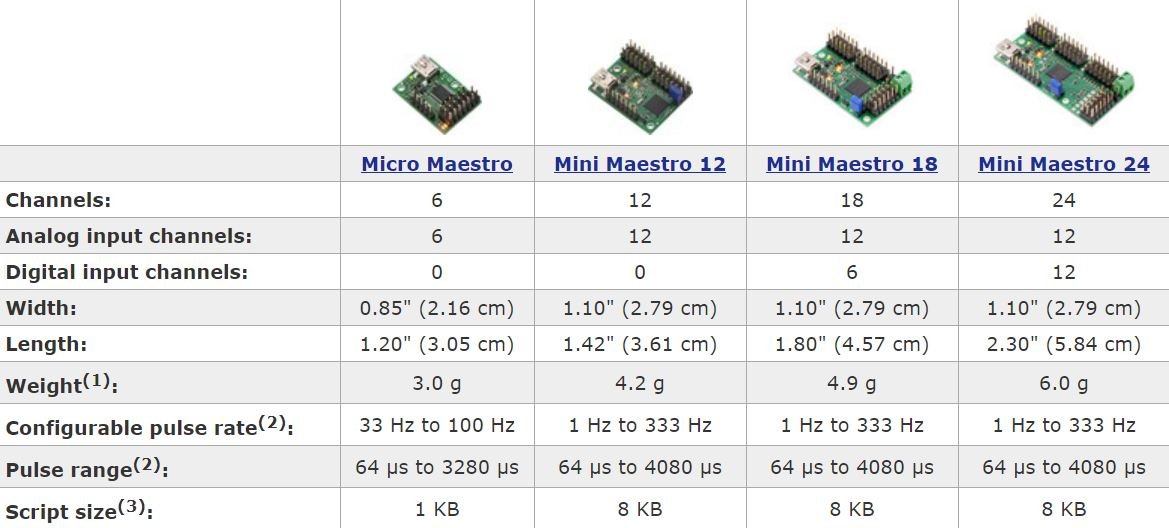
Application Examples and Videos
- Multi-servos based on BASIC Stamp or Arduino platforms serial servo controller for projects (e.g. robot arms, animatronics)
- PC-based servo control via USB port
- PC-based motor control by interfacing with ESC via USB
- PC interface for sensors and other electronic devices: Read a gyroscope or accelerometer from a computer for new user interfaces
- General I/O expansion for microcontroller projects
- Self-contained servo tester
.png)
